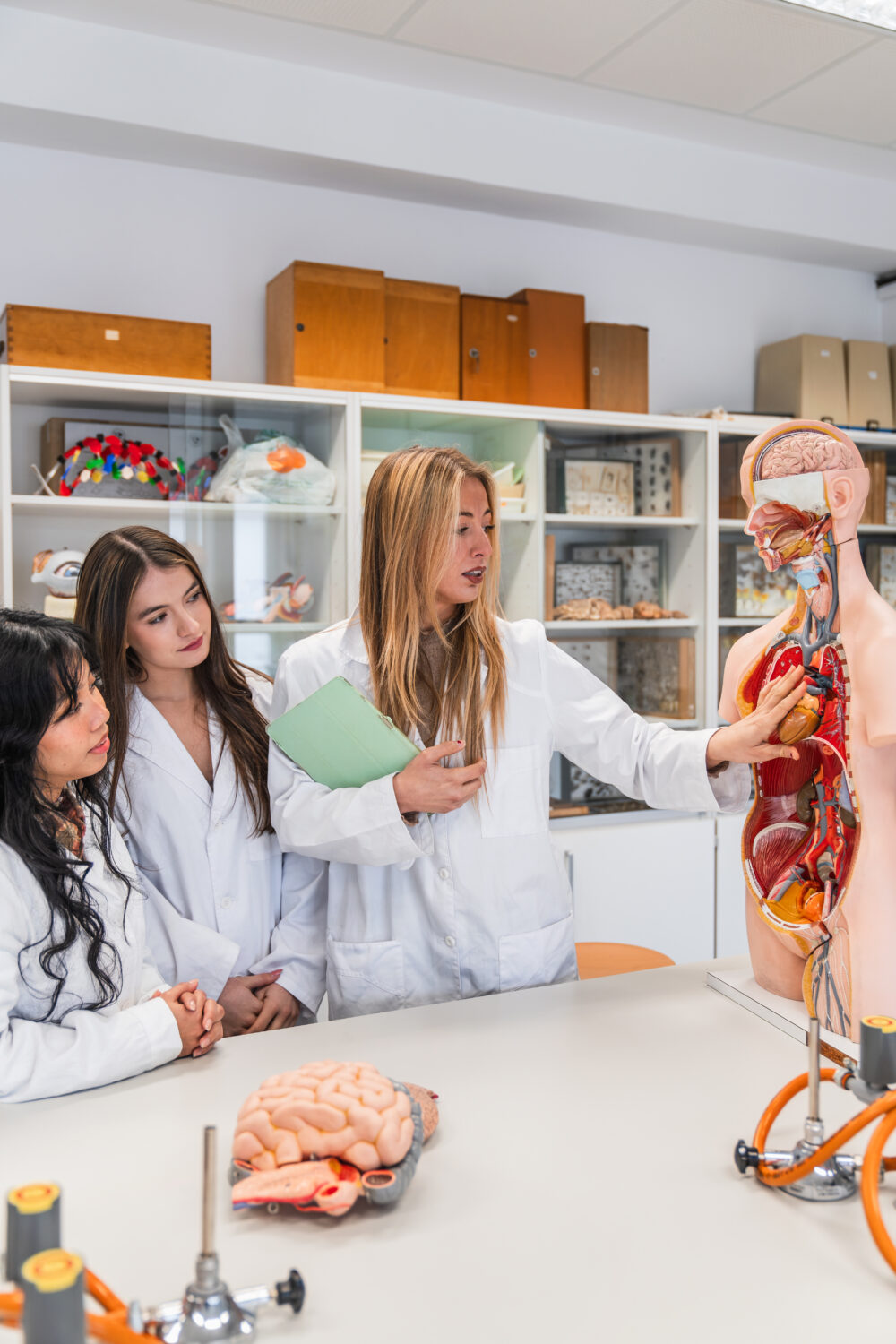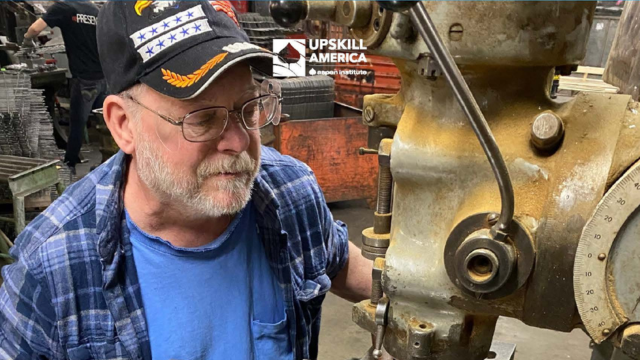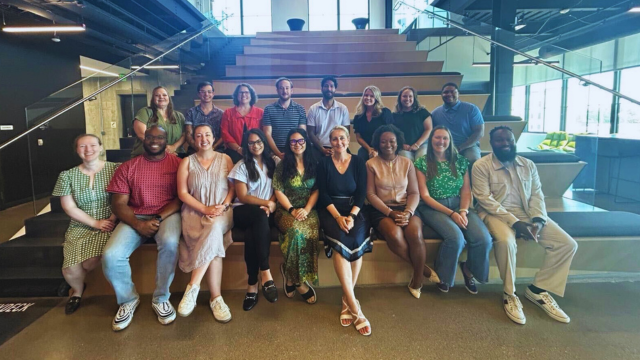U.S. Workers Are Falling Behind. Can They Catch Up?

Chelsea Miller
Associate Director
Despite years of investment in workforce education, a troubling trend is emerging: Americans’ foundational skills in literacy and numeracy are declining, leaving workers behind in an increasingly complex job market.
That is according to a global test of adult know-how, which measures job readiness and problem-solving among workers in industrialized countries. The results, released in December, largely show that the least-educated American workers between the ages of 16 and 65 are less able to make inferences from a section of text, manipulate fractions or apply spatial reasoning even as the most-educated are moving in the opposite direction. This is the first update of this data since 2017.
For years, employers have been working to increase economic opportunities for their employees by investing strategically in workforce education. This is particularly true of employers with large, frontline workforces. Programs these employers offer can take many shapes, including apprenticeships, education benefit programs, and internal training, among others.
We see evidence across companies and industries that education programs consistently show great success in driving retention, career mobility, and a strong return on investment – employees and employers both benefit from upskilling.
Unfortunately, data collected over the last decade shows a decrease in foundational skills, such as literacy and numeracy, for Americans across all demographics. The latest report from PIAAC indicates that there are decreases in proficiency for both literacy and numeracy across almost every demographic group. The number of survey respondents performing at the lowest proficiency level – Level 1 or below – in both literacy and numeracy increased by more than five percentage points since 2017.
The result of the test found that the lowest level of proficiency in both literacy and numeracy are those without high school diplomas. Adaptive problem solving is a new measure which helps assess an individual’s ability to achieve one’s desired outcome in a complex situation. Going forward, this metric will help assess one of the “soft” or “durable” skills often sought after in new and current employees. .
At UpSkill America, we are focused on helping employers design and develop education programs that leverage best practices and ensure employees have the support they need to succeed. We collaborate regularly with the three major stakeholder groups in this effort: employers, academic providers, and workforce practitioners.
Among these groups, there is frequently a disconnect between the programs offered, the support provided, and the employee’s current skills. We know that individuals can learn when they are set up for success, including ensuring that they have the foundational skills they need to learn.
What do these metrics mean for employers, especially those who are interested in upskilling their employees? It means that employers must pay attention to foundational skills, especially at the beginning of their learning journeys. Not doing so, or making assumptions about employees’ foundational skills, can create missing rungs on the ladder of opportunity.
We encourage employers to not only build upskilling programs that meet workers where they are, but which intentionally support foundational skills that may be lacking due to time away from formal schooling, gaps in educational experiences, language barriers, or many other reasons.
The objective here is two-fold. Employees who may struggle to succeed in academic programs may stop out of those programs discouraged and frustrated. Building foundational skills will enable workers to move forward faster and more effectively in their further education and employment.
Employers want to see their investments in education pay off, both in improving competencies and engagement of their workforce, and in opportunities for career advancement. Ensuring every employee has what they need to thrive is a smart business decision.
Where do we go from here? How do we work to address this skills gap in a way that works for all three stakeholders? We must partner together across all stakeholders to create learning programs that address learner needs at all levels. We should consistently underpin upskilling with focus on the foundational skills that make future learning possible and create achievable learning paths. We should be open and curious in understanding and recognizing all the ways that employees demonstrate competency – not just performance on standardized tests and inside of classrooms.
By partnering together and creating upskilling efforts that meet every working learner where they are at in their skills journey, we can create rungs on the ladder of opportunity and pathways into career and economic mobility.
This op-ed was originally published January 6, 2025 on www.workingnation.org.
About UpSkill America
UpSkill America, an initiative of the Economic Opportunities Program, supports employers and workforce organizations to expand and improve high-quality educational and career advancement opportunities for America’s front-line workers.
About the Economic Opportunities Program
The Aspen Institute Economic Opportunities Program advances strategies, policies, and ideas to help low- and moderate-income people thrive in a changing economy.
Join Our Mailing List
To receive occasional emails about our work — including new publications, commentary, events, fellowships, and more — join our mailing list.
Connect on Social Media
For news and updates every day, connect with us on the social media platform of your choice.






